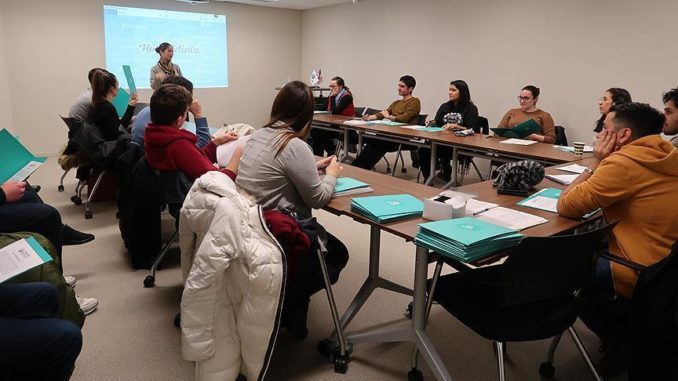
By Anadol Agency
Turkey’s Yunus Emre Institute holds a wide range of activities worldwide to promote Turkish culture.
The institute which became operational in 2009 has 157 branches across five continents.
It seeks to establish permanent cultural bonds in the countries it operates in.
The institute has a five-pronged approach; cultural diplomacy, institutional capacity, science diplomacy, cultural interaction and Turkish courses.
An academy conducting important research on cultural diplomacy has been operational since 2016. Lectures at the academy are given by leading experts, academics, diplomats, bureaucrats, journalists, scientists, artists and NGO workers.
One of the primary aims of the institute is to teach Turkish as a global language at home and abroad in light of international standards and scientific methodology.
In this context, the foundation provides Turkish language courses across the world with variations based on the age, requirement or understanding of the students.
Turkish competence certificate
Over the past decade, the institute has taught Turkish to some 68,000 students; when courses outside the cultural centers are calculated the figure swells to 110,000.
Currently, some 218,000 students from 194 countries learn Turkish via online courses. Turkish summer schools have taught the language to some 4,000 students from 130 countries.
With the aim of ensuring that Turkish language teaching has a global standard, the foundation holds Turkish Competence Exam.
If students prove their competence, they are awarded a certificate, through which they can be exempted from studying preparatory school in Turkey.
Besides, Turkish competence certificate helps those looking for employment in Turkey.
Around 6,000 people acquired this certificate between 2013 and 2018.
Scientific and academic interaction
The Yunus Emre Institute holds a series of projects to promote Turkey’s scientific and academic research while cooperating with numerous academic establishments across the world.
With its “Turkology” project, the institute signed a protocol with 96 universities in 49 countries.
The foundation aims to build a global network of diplomacy via TABIP — a project for academic coordination between Turkish and foreign universities — which is run under the auspices of Turkish presidency.
Reporting by Tugcenur Yilmaz and Tevfik Durul:Writing by Ali Murat Alhas
